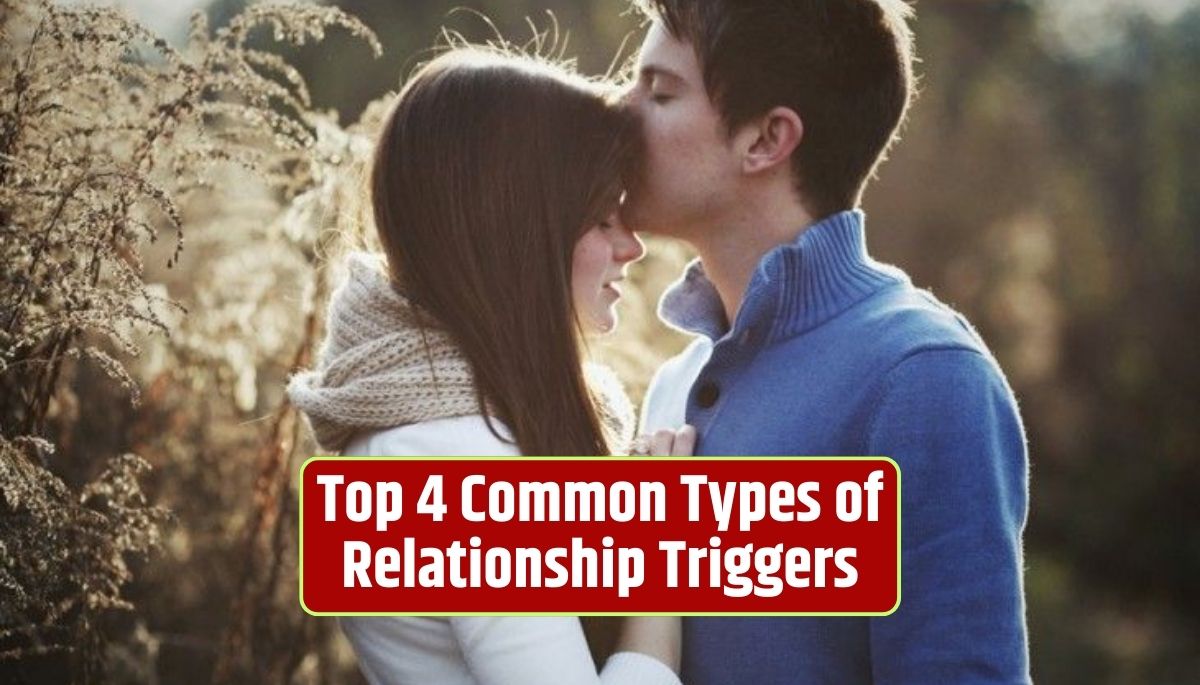Relationships are intricate webs of emotions, histories, and interactions. While they bring joy and connection, they can also stir up deep-seated emotions and reactions that stem from past experiences. These emotional landmines, often referred to as “relationship triggers,” have the power to spark intense reactions, impacting the dynamics of the relationship.
In this article, we’ll explore four common types of relationship triggers that individuals may encounter and how to navigate them for healthier connections.
Abandonment Triggers
Abandonment triggers are rooted in feelings of being left, neglected, or rejected. These triggers can stem from childhood experiences or past relationships where individuals felt abandoned emotionally or physically.
When these triggers are activated, individuals might experience heightened anxiety, jealousy, or fear of losing their partner’s affection. To manage abandonment triggers, open communication about past experiences and reassurance from the partner can go a long way in creating a sense of security.
Trust Triggers
Trust triggers arise when trust has been broken in the past, leading to difficulty in fully trusting current partners. Betrayals, lies, or deceit can leave individuals wary and hypersensitive to signs of potential betrayal.
These triggers can manifest as constant suspicion, monitoring of actions, or reluctance to open up emotionally. Building trust requires transparency, consistency, and a commitment to addressing past issues head-on.
Insecurity Triggers
Insecurity triggers often stem from low self-esteem or comparison to past partners or societal standards. Individuals may feel inadequate or fear being replaced by someone “better.” These triggers can lead to jealousy, possessiveness, and constant need for validation.
Overcoming insecurity triggers involves cultivating self-love, practicing self-compassion, and appreciating one’s uniqueness. Partners can support each other by celebrating strengths and reassuring their commitment.
Rejection Triggers
Rejection triggers arise from past experiences of rejection, whether in relationships or other areas of life. Individuals with rejection triggers may struggle with feelings of unworthiness or fear that their partner will eventually leave them.
These triggers can lead to clinginess, overcompensation, or avoidance of vulnerability. It’s important to address these triggers by acknowledging past pain, challenging negative self-perceptions, and fostering open conversations about insecurities.
Conclusion
Understanding and addressing relationship triggers is essential for cultivating healthy and lasting connections. By recognizing the types of triggers that affect individuals and their partners, they can work together to create a supportive environment that encourages healing and growth.
Through open communication, empathy, and a willingness to confront past wounds, couples can navigate their triggers with compassion, ultimately fostering stronger and more resilient relationships.
FAQs
Can triggers be resolved entirely?
While triggers may not vanish completely, they can be managed and their impact minimized through self-awareness, communication, and personal growth.
Are triggers solely based on past relationships?
Triggers can arise from past relationships, childhood experiences, or even societal influences that have shaped an individual’s perception of themselves and relationships.
How can partners support each other with triggers?
Partners can support each other by actively listening, providing reassurance, and avoiding judgment.
Can triggers evolve over time?
Yes, triggers can evolve as individuals work on themselves and their relationships.
Can therapy be helpful in addressing triggers?
Yes, therapy, especially cognitive-behavioral therapy (CBT) and trauma-informed therapy, can provide valuable tools for understanding and managing triggers within the context of relationships.






